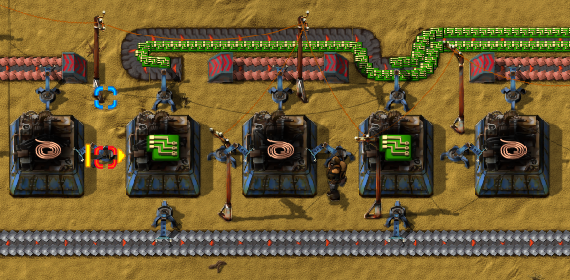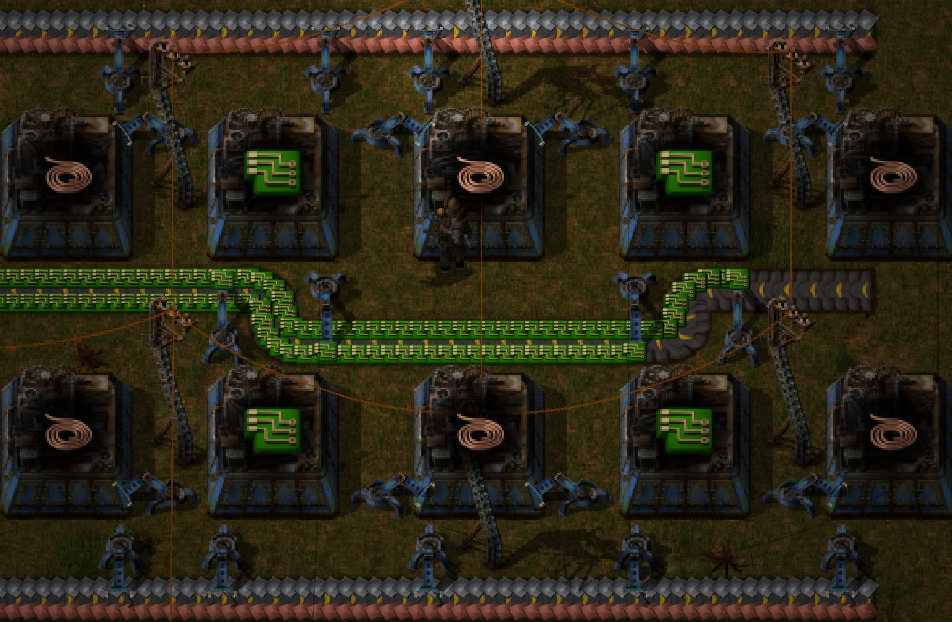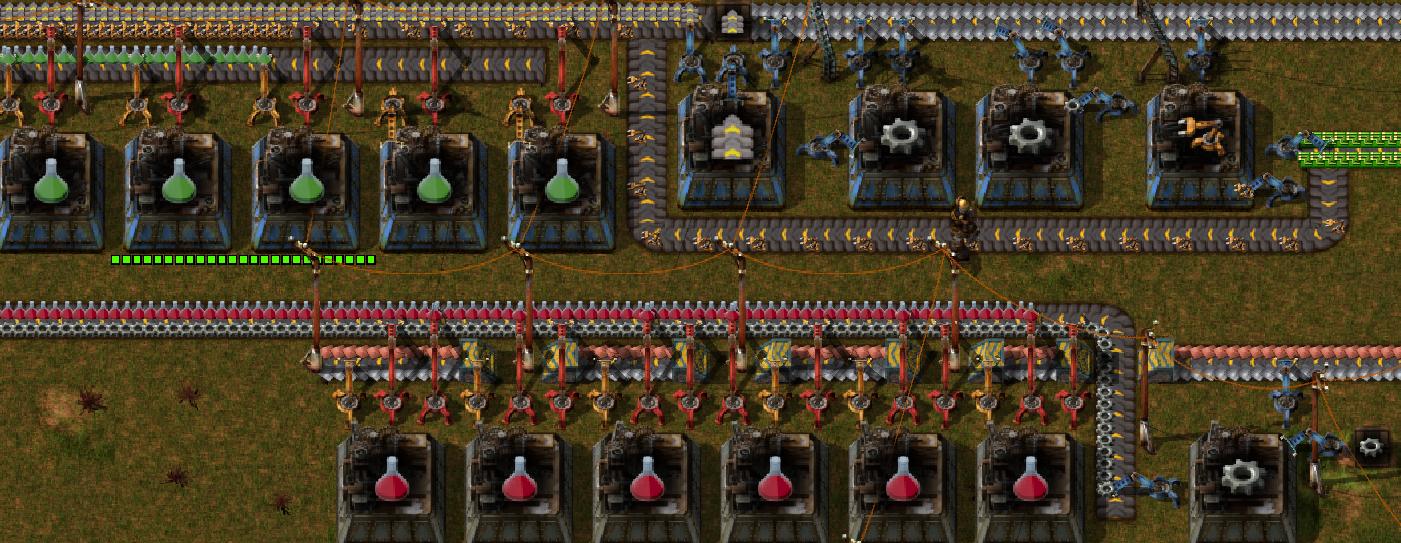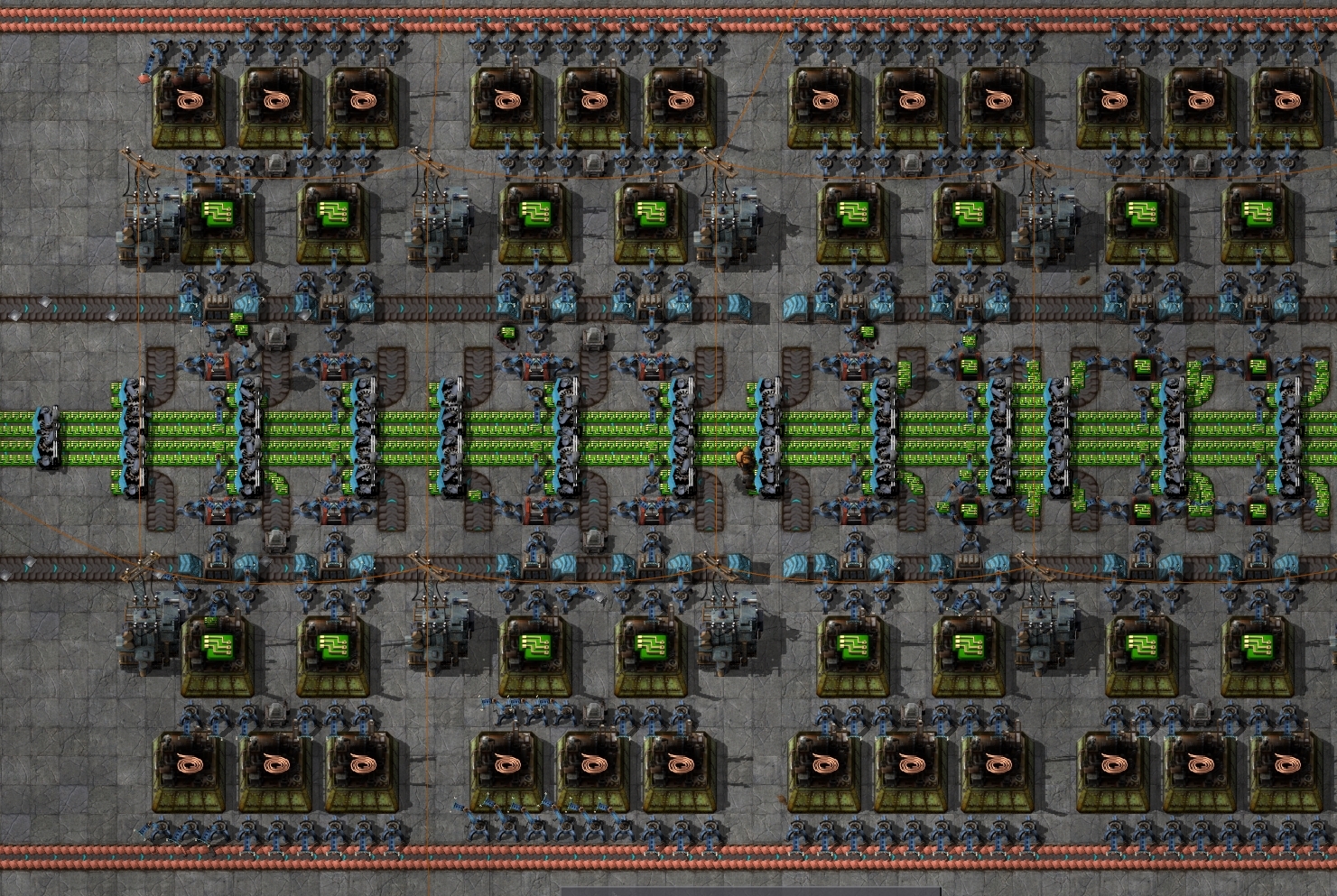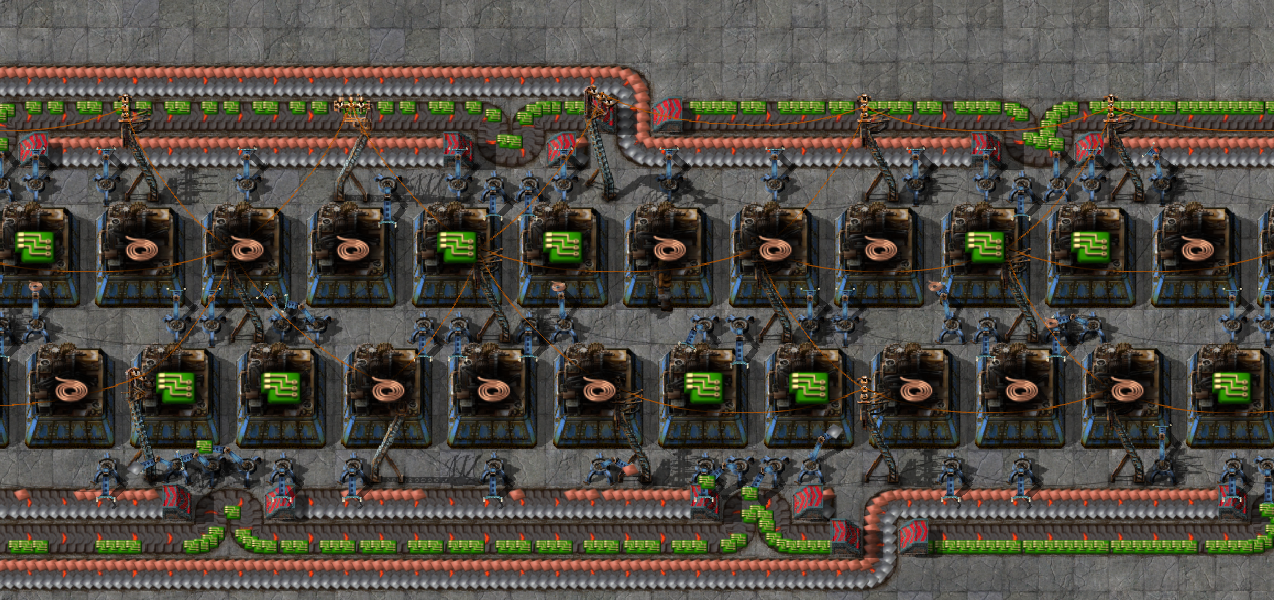Keep in mind, that I'm kind of new to Factorio.
Everyone knows standard build, AKA "3 to 2", like here:
What I don't like is long handed inserters. I just don't like it. You need to remember to build it. it's kind of hassle.
So I came to this quite similar build: It's the same ratio "3:2" and same container-to-container inserters. It's also symmetrical and scalable.
What's different, is:
1) the design is more narrow, 17 tiles instead of 22. But it is quite higher (15 instead of 9). And you can make it even more narrow, for the price of two more underground belts (i.e. 15 tiles wide and 15 tiles high).
2) it takes more underground belts. 8 instead of zero
3) It takes less iron power poles (4 instead of 5).
4) no long handed inserters
Really, I suppose the original build is just simpler than mine. But whatever.
Maybe you happen to have only 15 tiles for green cells production?



